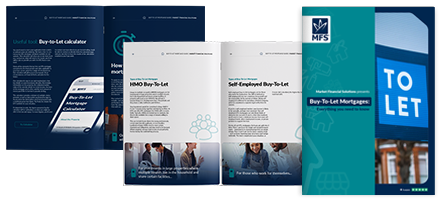
Written by Omkar Hushing
Deputy Chief Mortgage & Operations Officer – Front End
Market Financial Solutions are a bridging loan and buy-to-let mortgage provider and are not legal, financial, investment or tax advisers. This document is for informational purposes only and does not, and should not be considered, to constitute legal, financial, investment or tax advice or be relied upon by any person to make a legal, financial, investment or tax decision. Therefore, Investors are encouraged to seek appropriate professional advice. The information in this content is correct at time of writing.

Landlords, whether they’re first-time buyers or expanding portfolio owners, will likely always be asking themselves questions concerning how best to proceed. Rightfully so, considering there are over 170 acts[1] and regulations that landlords need to adhere to.
Buy-to-let rules are complicated and addressing every single concern that can befall a landlord would be impossible. There are simply too many variables involved and to give themselves the best chance of success, investors will need to seek qualified guidance from financial planners, accountants, wealth managers and the like.
But, there are a few key common questions which can be tackled. By covering the basics, we can at least provide landlords with a sense of stability and confidence as they move forward.
What are the key buy-to-let rules in the UK?
This is, arguably, the question with the broadest answer. A “key” rule may be subjective. But, at a minimum, landlords may want to concern themselves with the legal requirements, financial regulations, and tax implications that affect their operations.
Currently, landlords must[2]:
- Keep their rented properties safe and free from health hazards
- Make sure all gas equipment and electrical equipment is safely installed and maintained
- Provide an Energy Performance Certificate for the property
- Protect their tenant’s deposit in a government-approved scheme
- Check their tenant(s) has the right to rent the property if it’s in England
- Give their tenant(s) a copy of the How to rent checklist (which can be found on the government’s website[3]) when they start renting from them
These are the basic rules which obviously splinter into numerous areas and requirements. Safety wise, landlords will need to conduct various fire safety checks, and expect inspections from local councils.
The relationship between the landlord and their tenants will be managed through a tenancy agreement[4]. This contract sets out the details and conditions of the tenant’s living arrangements, while also determining how rent increases can be conducted.
How often can I raise rents?
Generally, for a periodic tenancy, rents can be increased once a year. With fixed-term tenancies, rent can only be raised if the tenancy permits it, or when the fixed term ends. As it stands, buy-to-let rules dictate that rent increases must be “fair and realistic” and broadly in line with rents found on the open market. If tenants feel their rent increase is unfair, they can turn to the First Tier Property Tribunal for assistance.
As tenancies end, landlords may ask their tenants to sign a new agreement which may include details of a rent increase. This is sometimes known as a renewal agreement or replacement tenancy[5].
If a tenant breaks the terms of a tenancy, it may be possible to evict them using a section 8 notice. This will require landlords to fill in a “notice seeking possession of a property let on an assured tenancy or an assured agricultural occupancy” form which can be found on the government’s website[6]. It’s possible to get legal advice on how to fill out this form, apply the correct notice periods, and how to give it to tenants.
The buy-to-let rules on eviction are very strict and if the correct procedures aren’t followed, landlords may be found guilty of harassing or illegally evicting their tenants. Fortunately, guidance from the state can be found online[7] for/on:
- Section 21 notices
- Standard possession orders
- Accelerated possession orders
- Possession hearings and orders
- Eviction notices and bailiffs
What taxes will I need to pay?
Tax is another concern which combines both one’s finances and legal obligations. While this is a complicated area, there are a few key taxes that landlords should get to grips with. Income received from rent will face income tax[8]. Profits, after deductible expenses or allowances, will be taxed.
How much income tax will be paid will depend on the amount of profit made, how much income is generated from other sources, and what tax bracket the landlord falls into. In the 2024/25 tax year, the income tax rates are[9]:
- Personal Allowance: 0% tax on earnings up to £12,570.
- Basic Rate: 20% tax on earnings between £12,571 and £50,270.
- Higher Rate: 40% tax on earnings between £50,271 and £125,140.
- Additional Rate: 45% tax on earnings over £125,140.
Landlords are also likely to be hit by stamp duty when they purchase a property[10], and/or capital gains tax when they sell a BTL property on for a profit[11]. It’s possible to change how much tax is due as a landlord via routes such as investing via a company[12] and taking advantage of allowable expenses[13]. But, as mentioned, this is a complicated area. One which we cannot help with. If landlords are concerned about their tax bill, they should seek advice from accountants and other tax professionals.

Do I need to be licensed as a landlord?
Whether a landlord needs to be licensed or not will depend on their local authority, and the type of asset they’re investing in. Selective buy-to-let rules around licensing introduced in 2004 allow councils to designate certain areas in which properties in the private rented sector are required to be licensed by the local housing authority[14]. Areas that have recently exercised this legislation include Lewisham[15] and Brighton[16].
Houses in multiple occupation (HMOs) will need to be licenced by a local authority if they are (or will be) occupied by 5 or more people[17]. Smaller HMOs (those that accommodate less than 5 people) may also need to be licenced, depending on the local council’s preferences.
To find out if they’ll need a license to operate, landlords should check in with their local authorities to get on the right side of the rules.
What repairs am I responsible for?
The responsbilities of landlord and tenants are laid our clearly. Tenants are generally responsible for minor repairs caused by day-to-day wear and tear. This includes anything they may have damaged, blown fuses, light bulbs etc[18].
But, on the flipside of this, buy-to-let rules enforce landlords to make major repairs where needed. Including:
- Damages to the structure of the property – think walls, the roof etc
- Typical bathroom and kitchen features such as sinks, baths, and toilets
- The internal pipes and wiring
- Heating and hot water – this chiefly concerns the boiler
- The safety of gas and electrical appliances
Mould and dampness are some of the most contentious issues in the private rented sector (PRS). But, such an issue may not be the fault of a landlord, or their responsibility to resolve. If dampness and/or mould issues are the result of structural problems with the property itself, it is the landlord’s responsibility to fix them[19]. But, if mould is caused by a tenant’s lifestyle, landlords may not be required to make costly repairs or changes.
To be on the safe side and avoid repairs all together, it may be advisable to ensure a property is well maintained from the get-go. Investing in “good bones” from the beginning may limit costly repercussions down the line.
Have there been any major recent changes to buy-to-let rules that I should be aware of?
The property market is always evolving. The latest piece of news that is likely to impact landlords is the victory of the Labour party.
As it came to power, it laid out plans to completely overhaul housing and buy-to-let rules in their entirety. Headlines include plans to abolish Section 21 evictions[20], upend rules in the PRS[21], and bring back mandatory housebuilding targets[22].
Some of these plans were solidified via the Kings Speech, which confirmed the state will be working on a Renters’ Rights Bill, cracking down on “bidding wars” and discrimination, and extending Awaab’s Law to the private market[23].
It remains to be seen how these plans will take shape as we progress. For the BTL market, observing how landlords react may also pay dividends.
What risks and opportunities are on the horizon?
There is no getting away from the fact that landlords are facing a challenging market at the moment. Rising costs, tougher buy-to-let rules, and stagnant capital growth have taken their toll on BTL investors[24].
Some say It’s led to a landlord exodus, where many investors are abandoning the market entirely[25]. However, as with any changing market, this also leads to opportunities for those who wish to find them.
As some landlords sell up, new stock will be coming to market, potentially at reduced prices. This can be jumped on by expanding investors looking for potential.
And there is still potential in the PRS. Despite everything, rental yields are up across all regions in England and Wales[26]. Average rents for new lets are currently 6.6% higher than they were last year[27], while BTL mortgage rates are starting to fall[28].
The BTL market is about to enter new territory, in which both lenders and landlords will need to adapt. Fortunately, with nearly 20 years of bespoke lending experience behind us, we are well versed in adapting to the needs of the market, and remaining flexible in the face of changing legislation.
The Complete Guide to
Buy-to-Let Mortgages
Everything you need to know
- Fundamentals
- Different mortgage types
- Useful tools
- Industry stats & more
[1] https://garrettwhitelock.co.uk/landlords/landlord-legal-responsibilities/
[2] https://www.gov.uk/renting-out-a-property
[3] https://www.gov.uk/government/publications/how-to-rent
[4] https://www.gov.uk/private-renting-tenancy-agreements
[5] https://england.shelter.org.uk/housing_advice/private_renting/rent_increases
[6] https://www.gov.uk/guidance/assured-tenancy-forms#form-3
[7] https://www.gov.uk/evicting-tenants
[8] https://www.which.co.uk/money/tax/income-tax/tax-on-property-and-rental-income/how-rental-income-is-taxed-ai4Uu0j7aMmx
[9] https://unividual.co.uk/financial-guides/2024-2025-tax-tables/
[10] https://www.marshandparsons.co.uk/landlords/landlords-advice/buy-to-let-stamp-duty/#:~:text=Even%20if%20you%20are%20buying,have%20to%20pay%20stamp%20duty.
[11] https://www.alanboswell.com/news/landlord-tax-guide/#Capital%20Gains%20Tax
[12] https://www.taxrebateservices.co.uk/tax-faqs/uk-landlord-faqs/limited-company#:~:text=Individual%20landlords%20are%20subject%20to,payable%2C%20thereby%20enhancing%20tax%20efficiency.
[13] https://www.taxd.co.uk/blog/allowable-expenses-for-landlords
[14] https://www.gov.uk/government/publications/selective-licensing-in-the-private-rented-sector-a-guide-for-local-authorities/selective-licensing-in-the-private-rented-sector-a-guide-for-local-authorities#what-is-selective-licensing
[15] https://www.insidehousing.co.uk/news/londons-private-landlord-licensing-scheme-covers-extra-20000-homes-86607
[16] https://www.brighton-hove.gov.uk/news/2024/introduction-property-licensing-schemes-agreed
[17] https://www.gov.uk/renting-out-a-property/houses-in-multiple-occupation-hmo
[18] https://www.citizensadvice.org.uk/housing/repairs-and-housing/repairs-and-housing-conditions/renting-from-a-private-landlord/dealing-with-repairs/
[19] https://www.rhyljournal.co.uk/news/24381953.martin-lewis-reveals-landlords-responsible-mould/
[20] https://www.propertyreporter.co.uk/the-fate-of-section-21-the-industry-responds-to-labour-governments-impact-on-landlords.html
[21] https://www.simplybusiness.co.uk/knowledge/articles/what-a-new-government-means-for-landlords/
[22] https://www.bbc.co.uk/news/articles/ckkg2l1rpr4o
[23] https://www.telegraph.co.uk/politics/2024/07/17/kings-speech-keir-starmer-labour-opening-parliament/
[24] https://www.telegraph.co.uk/money/property/buy-to-let/tough-time-to-be-landlord-how-to-decide-next-move/
[25] https://www.telegraph.co.uk/money/property/buy-to-let/labour-encourage-landlords-buy-more-homes-rents-record-high/
[26] https://propertyindustryeye.com/rental-yields-up-in-across-all-regions-of-england-and-wales/
[27] https://www.zoopla.co.uk/discover/property-news/rental-market-report/
[28] https://www.which.co.uk/news/article/whats-happening-to-buy-to-let-mortgage-rates-aPCwx0Y6FH3h





